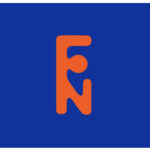
In today’s show, Joe Vennare spoke with Will Ahmed, founder and CEO of WHOOP — a wrist-worn tracker that monitors recovery, training, and sleep. Also today, the company announced $55M in Series D funding bringing the total amount raised to more than $100M.
Joe and Will discuss unlocking human performance, how alcohol affects recovery, and the difference between wellness and the “Performance Lifestyle”.
Check out an overview of the conversation below or listen to the entire episode for more.
What is Whoop?
WA: Our mission at WHOOP is to unlock human performance. We believe that every individual has an inner potential that you can tap into if you can better understand their body and their behaviors.
We’ve built technology across hardware, software, and analytics designed to understand the body and help you improve performance.
Preventing Overtraining
WA: In college, I became obsessed with preventing overtraining. And in the process, I got interested in training optimally, recovery, sleep, and injury prevention.
Overtraining and burnout is an imbalance between stress and recovery. If you want to live optimally, you need to measure the strain you’re putting on your body. So measuring recovery is really necessary. And I think that’s the most important thing Whoop has brought to the market.
Whether you’re an elite athlete or high performing individual, Whoop tells you how ready you are to perform today.
We measure heart rate variability and sleep quality, including how much time you spend in periods of REM sleep. And we also look at resting heart rate, which is an indicator of how stressed or how recovered you are. Using those measures, we’ve created an algorithm from zero to a hundred percent—red, yellow, and green—representing how ready you are to perform today.
The Power of the “Ready Score”
WA: The concept of “how ready you are to go today” is powerful. There are secrets your body is trying to tell you that Whoop is now able to measure. And Whoop’s analysis doesn’t always correlate with how you’re actually feeling… the data is better at predicting your level of performance than your own intuition.
WHOOP vs. Fitness Trackers
WA: Whoop is unique in that it’s designed to live a step ahead of you.
If your recovery score is high, you can take on more strain. If you have a low recovery, it tells you to take on less strain. And at the end of the day, we look at the strain you’ve accumulated and we tell you how much sleep to recover. Then you wake up with a new recovery score. In that way, the cycle is quite powerful and pretty different from other products on the market.
Why the hardware is free
WA: When you ask someone to show you their Whoop, they pull out their phone to open the app. They don’t show you the wristband. The phenomenon is the data. It’s not the hardware.
And what we’ve realized over time is that the value we’re providing to someone is that analysis of their data every day, every week, every month. And it’s our responsibility to keep coming out with new features and new analysis to make that experience invigorating every day.
Too much data?
WA: One thing our team says is the more data you collect, the less data you should actually be showing to a user. Because you don’t want to overwhelm people.
At the end of the day, people only have a limited amount of time. We chose to specifically focus on strain, recovery, and sleep. We’re collecting hundreds of megabytes of data a day and rolling that into three numbers so users can dig deeper and deeper and deeper over time.
**Note: Will’s answers have been edited for brevity and cohesion.
About Will Ahmed:
Will Ahmed is the Founder and CEO of WHOOP, which has developed next generation wearable technology for optimizing human performance. WHOOP today works with professional athletes across every sports league, college athletes across every conference, Olympians and the U.S. military; the company more recently released its first consumer product.
Ahmed has raised more than $50 million from top investors and has an active advisory board that consists of some of the world’s most notable cardiologists, technologists, marketers, and designers. Ahmed wrote “The Feedback Tool: Measuring Fitness, Intensity, and Recovery,” which sparked the underlying physiology and engineering for his work today.
Ahmed was named a 2011 Harvard College Scholar for finishing in the top 10% of his class and a CSA Scholar Athlete; he captained the Harvard Men’s Varsity Squash Team. Ahmed was recently named to Forbes 30 Under 30 and Boston Business Journal 40 Under 40.





